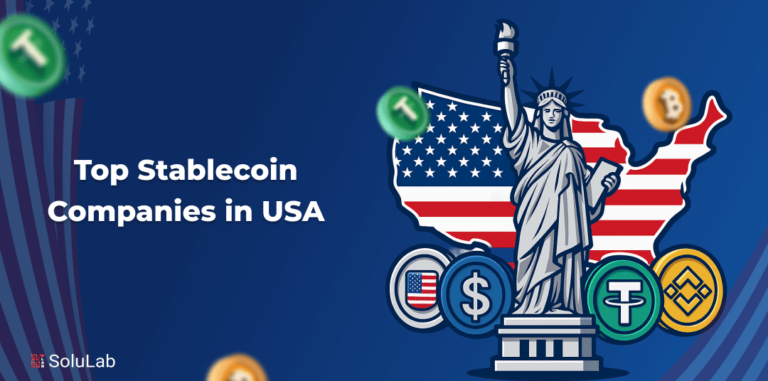Every sector is being impacted by digitization. With NFTs, owning rare collectibles is now digital as well. NFTs are the new normal, and NFT markets are the most sought-after platforms. Every day, new trends emerge, and established ones are updated to a higher version. This decade’s developing technology is the NFT market. All NFT markets are currently being created on existing blockchains. The next step with this technology will be the establishment of NFT marketplaces on the Polygon network.
NFT Marketplaces
In most cases, NFTs are created in preexisting blockchain networks and the most widely used blockchain is the Ethereum blockchain for this purpose. NFTs are currently on other blockchains as well, such as Flow Blockchain, Binance Smart Chain, Cardano blockchain, and many others. Due to the growing traffic and congestion problem on the Ethereum blockchain others are being used as well. An NFT Marketplace platform allows users to mint, purchase, and sell NFTs. It is basically a trading platform for NFTs.
Despite the fact that Ethereum is a safe platform featuring technologies like node distributions and smart contracts, the gas charge for minting an NFT is significant owing to the enormous volume of transactions taking place on this blockchain. The NFT marketplace on Polygon will fix all of the issues that have arisen so far. Polygon networks provide a superior habitat for NFTs, from low gas prices to scalability.
What is Polygon?
With the rising issue of traffic congestion and gas fees on the Ethereum blockchain network due to its dramatically growing usage prompted the creation of the Polygon as a solution. Polygon is a layer two solution for the Ethereum blockchain’s scalability problem co-founded by Jaynti Kanani, Sandeep Nailwal and business consultant Anurag Arjun.
Polygon began as a distinct blockchain that supported its own unique initiatives, termed the MATIC Network. Its creators, on the other hand, wanted to improve its utility by turning it into an Ethereum sidechain, and so the Polygon network was established.To put it another way, it’s a child chain that aids in the connection of Ethereum compatible blockchains. It presents itself as a link in the construction of a multichain system.
How does Polygon Work?
Polygon is a developer-friendly ecosystem that blends the finest of the Ethereum blockchain features with the best features of all other blockchains. Polygon operates by allowing developers to create bespoke networks and interoperability protocols for communications between the Ethereum blockchain and other blockchain networks. Polygon combines the greatest characteristics of independent blockchains, such as scalability, sovereignty and flexibility, with those of Ethereum, such as security, interoperability and the developer experience.
Polygon does this by implementing a four-layered network which includes the Ethereum blockchain layer, the security layer, Polygon own network layer and lastly the execution layer. The Ethereum layer facilitates checkpointing, staking, dispute resolution, and message relaying using a series of Ethereum smart contracts. The security layer acts as a meta-blockchain that runs alongside Ethereum and manages validators and Polygon chain validation. To aid with transaction collation, local consensus, and block creation, the Polygon networks layer acts as a bouquet of multiple sovereign blockchain layers. The execution layer understands and performs transactions on top of these.
Benefits of Polygon NFT marketplace development
Polygon’s NFT marketplace has a number of advantages over other standard blockchain networks currently in use. Polygon solves Ethereum’s intrinsic and structural problems, such as low throughput, poor user experience, and absence of sovereignty. Polygon’s major advantages are:
- The entire underlying blockchain architecture benefits from Polygon’s great data speed.
- It enables a one-of-a-kind scaling system that is both efficient and quick.
- It distinguishes itself from other blockchains by providing better scale, adaptability, and compatibility.
- It provides extremely secure protocols and excellent data encryption for all transactions.
- Compared to conventional blockchain networks, Polygon has an extremely low gas fee. Polygon also comes with a cheap transaction fee.
NFT marketplace on Polygon and its Features
Polygon is an open-source and decentralized blockchain platform. Polygon offers the advantages of a layer two solution and is easily adaptable to the establishment of an NFT marketplace. There are many more qualities which make it suitable for the construction of a NFT marketplace.
Security
Polygon network implements the proof of stake consensus technique in order to address the platform’s decentralized nature. The Proof of Stake consensus technique allows for fast transactions. This provides a very high transaction throughput.
Network Scalability
Polygon is a comprehensive blockchain scaling approach that enables the best of the Ethereum protocol with the benefits of sovereign blockchains in the world today. The PoS Chain, Hermez zK-Rollup and Polygon SDKs are just a few of the scaling options available with Polygon currently, with many more on the way. By allowing numerous side chains to be added to the network Polygon promotes the scalability of the main network. This scalability allows a single side chain to handle up to ten thousand requests at one particular moment.
Modularity
The side chain network which Polygon offers creates a multi-chain ecosystem which divides the system into two different layers namely the dependent and the independen. This provides future upgradeability and customization options.
Compatibility
Polygon lets users connect to a variety of blockchains that are Ethereum-compatible.
Robust Architecture
Polygon architecture is made up of four levels that may be combined together in order to enhance robustness. The Ethereum layer is in charge of staking, relaying of messages and the settlement of disputes, while the Security layer is in charge of validation. The Polygon networks layer, which is followed by the Execution layer, is in charge of transaction collation, local consensus, and block construction.
Native Token
The Polygon sidechain has a native coin called Matic. Matic, like all other tokens, is used as a means of trade in the system. It also has the ability to store tokens in the polygon network.
Interoperability
The Polygon Matic chain is distinguished by its adaptability. It facilitates interoperability of chains since it can link with other Ethereum compatible blockchains. As a result, a healthy multi-chain system is easily provided. Platforms based on the Polygon protocol and framework are engineered to work with other EVM blockchain systems as well as Ethereum by default. As a result, it offers improved cross-platform capabilities and a pleasant user experience without the need to connect to a decentralized environment.
User Experience
Ethereum’s programmability, which is generally known across the globe, provides a fantastic user experience. Polygon is a layer two Ethereum blockchain solution that inherits Ethereum’s user interface while also providing additional capabilities including “zero-gas” transactions and immediate (deterministic) transaction finality.
Wrap Up
Since NFTs are becoming more popular as conventional collectibles, it is critical for business owners to plan ahead. One of the growing innovations in the blockchain sector is the establishment of the NFT marketplace on the polygon. Polygon is one of the most well-known initiatives in the crypto market, and it has been created with the goal of making Ethereum blockchain transactions considerably cheaper and quicker than they were before on the blockchain system.
In other words, it tries to address difficulties that have arisen inside the network, which is one of the key reasons why it has attracted a large number of investors.
NFT markets on the polygon network are becoming more common, and the growth is expected to continue. Entrepreneurs may open a whole new door for launching their NFT marketplace by using Polygon’s NFT marketplace.




